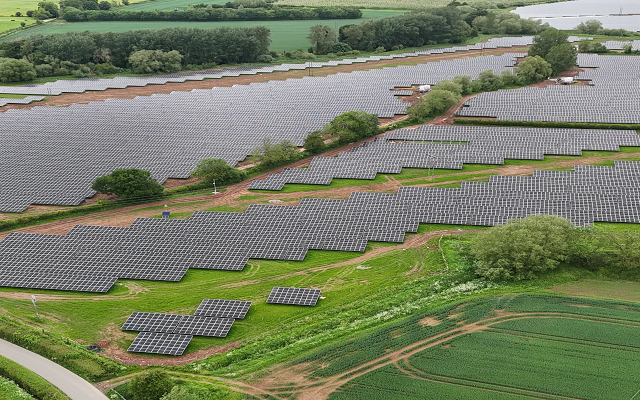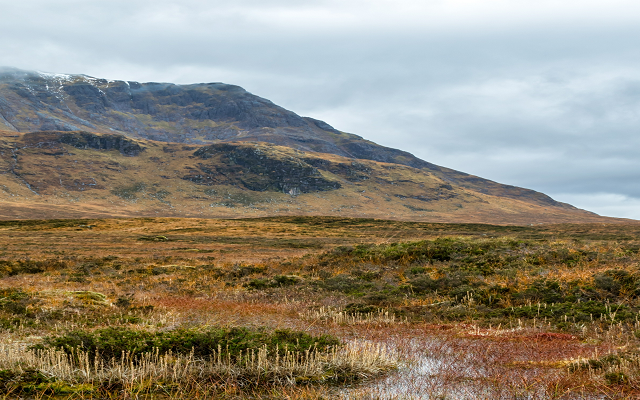What’s really changed when it comes to net zero?
The government and prime minister Rishi Sunak have been criticised – widely – for changes to a range of environmental policies. The first recent change was to try to remove the requirement for nutrient neutrality of new developments in areas that are sensitive to nitrate and phosphate pollution, although a subsequent defeat in the House of Lords means that the policy will stay in place.
The PM then made a speech on 20 September in which he said that he would not impose ‘unacceptable costs’ on households in order to hit the country’s net zero target. He touched on a number of green policies, saying that politicians had not been ‘honest’ about the cost of net zero.
Since then, the government has announced a delay in the implementation of the policy that requires developments that have an impact on biodiversity to instead deliver a net gain.
While many of the changes do not appear to make very significant changes to environmental outcomes – or the cost of delivering environmental policies – the greater cost appears to be to the government’s image, both in the UK and to the rest of the world, and to the public’s willingness to act to reduce their personal emissions.
Domestically, the announcements have been widely criticised. Car makers, the Climate Change Committee (CCC), manufacturers’ trade bodies and other industry bodies and environmental organisations have questioned the cost savings and said it leads to greater uncertainty for businesses. Many organisations have asked to see the government’s calculations of the short-term savings for households and the cost to them in the medium- to long-term.
The challenge for the government – and it may be a challenge in the form of legal action – is to demonstrate how their policies will meet the trajectory of emissions reductions that it is legally required to meet by the Climate Change Act. The government has already lost a legal challenge to its net zero plans. While the country has reduced emissions significantly in the past, the CCC was already concerned about meeting the next carbon budget for 58% lower emissions between 2028 and 2032, compared with 1990 levels.
Analysis by the Green Alliance calculated that, before Sunak’s announcement, the government did not have policies to cut 15% of the emissions it is required to cut. That gap will have grown with the announcements, possibly to around 21%.
This would be of less concern if existing climate policies were hitting their targets, but the majority are not. Heat pumps and insulation were already well behind target. All of the main climate policies related to land management are behind – tree planting, peatland restoration and the decarbonisation of farming.
As has been widely said by most industry groups, as well as environmental groups, the greatest effect of the announcement is the message it sends to businesses, individuals and to the global community. The UK is no longer being seen as a world-leader in its approach to climate change.
A look at the changes in more detail
- The ban on the sale of new petrol and diesel cars will be pushed back from 2030 to 2035
The change will allow car makers to continue to sell new petrol and diesel cars for longer but only up to 20% of all of the cars they sell, so the majority sold will be electric. The ‘zero emissions mandate’, which requires that an increasing proportion of all new cars sold by manufacturers must be electric, is unchanged.
The reaction from car manufacturers has been to either call for consistency in policy, due to the long-term and large scale of investments they make in plant and machinery, or to reaffirm their aim to switch to electric car production, in the case of Nissan.
2. Slowing down replacing gas boilers with heat pumps
The change being made is that houses off the gas grid, or using oil and the 20% of homes deemed too difficult to convert, will be exempt from the fossil fuel phase out. The government hopes that oil boilers will be able to run on lower-carbon alternatives, which will be available before too long.
Overall, the policy of decarbonising home heating remains in place, as does the phasing out of gas boilers for the majority of households but the date by which new gas boilers can’t be installed is now 2035. The grant to install a heat pump has been increased to £7,500 from £5,000.
3. Dropping proposals for landlords to make homes more energy efficient
The requirement for owner-occupied and privately rented properties to meet a minimum level of energy efficiency (by 2030 and 2025 / 2028 respectively) has been scrapped. The scrapping of the rules for landlords has been met with relief by the Country Land and Business Association, which has long argued that the proposals put an unfair burden on owners of rural property because the current EPC methodology is not designed for traditional buildings. However, the government’s claim that this would save money for households has been challenged by the Energy Saving Trust which said that renters in England and Wales will spend £1.1 billion in 2023 alone on energy that escapes from their homes through inadequate insulation and draughts. The Trust also said that the economic and energy security benefits of policies that improve home energy efficiency have been repeatedly proven.
The government also scrapped a taskforce on energy efficiency that it set up in March, saying that its work would be ‘streamlined’ into ongoing government activity.
Although not part of the prime minister’s original announcement, the government has since given consent for the Rosebank oilfield near the Shetland Isles. Organisations that support a faster move to improve the energy efficiency of houses – and the UK has among the poorest housing stock in Europe – say that the country would be less dependent on fossil fuels if we invested in energy efficiency and renewable energy. The Office for Budget Responsibility has shown that dependence on gas imports could be twice as costly in debt as public investment in the transition to net zero.
4. A government diktat to sort your rubbish into seven different bins
This was never a government policy but related to a scheme to standardise recycling across England with councils able to separate seven types of waste. Suez, a large waste management company, said that the seven bins idea got thrown out a long time ago and called the announcement ‘a bit of a red herring’.
5. Taxes on eating meat
Rishi Sunak said he had scrapped a proposal to make people change their diet by taxing meat. However, the government had already ruled it out, suggesting it would not tell the public what to eat.
The government’s food strategy, published in June 2022 and overseen by former Defra minister George Eustice, said that there is a need ‘to shift diets’ but was almost completely silent about what to do and how to do it. Indeed, it contained no references to reducing meat or dairy consumption, as was recommended by the Henry Dimbleby – led independent National Food Strategy (NFS) in 2021. The government has said, repeatedly, that it does not want to tell people what to do (although it does do that for other foods and drinks).
6. New taxes on flying
Again, the government had not previously proposed a new tax on flights although the CCC had said, in 2022, that demand for flights could be reduced by changes to taxation, such as reversing the 2021 cut in air passenger duty.






